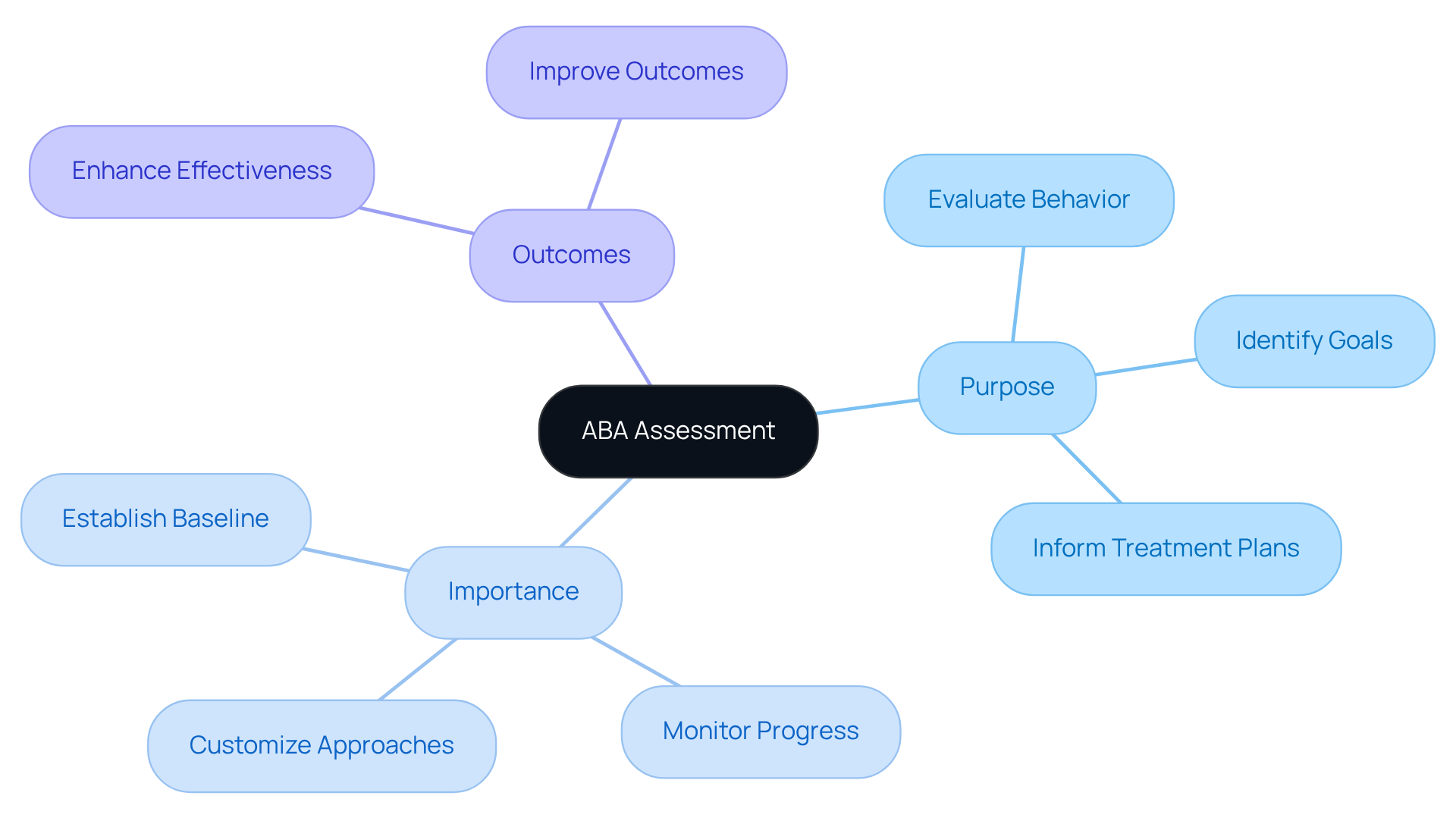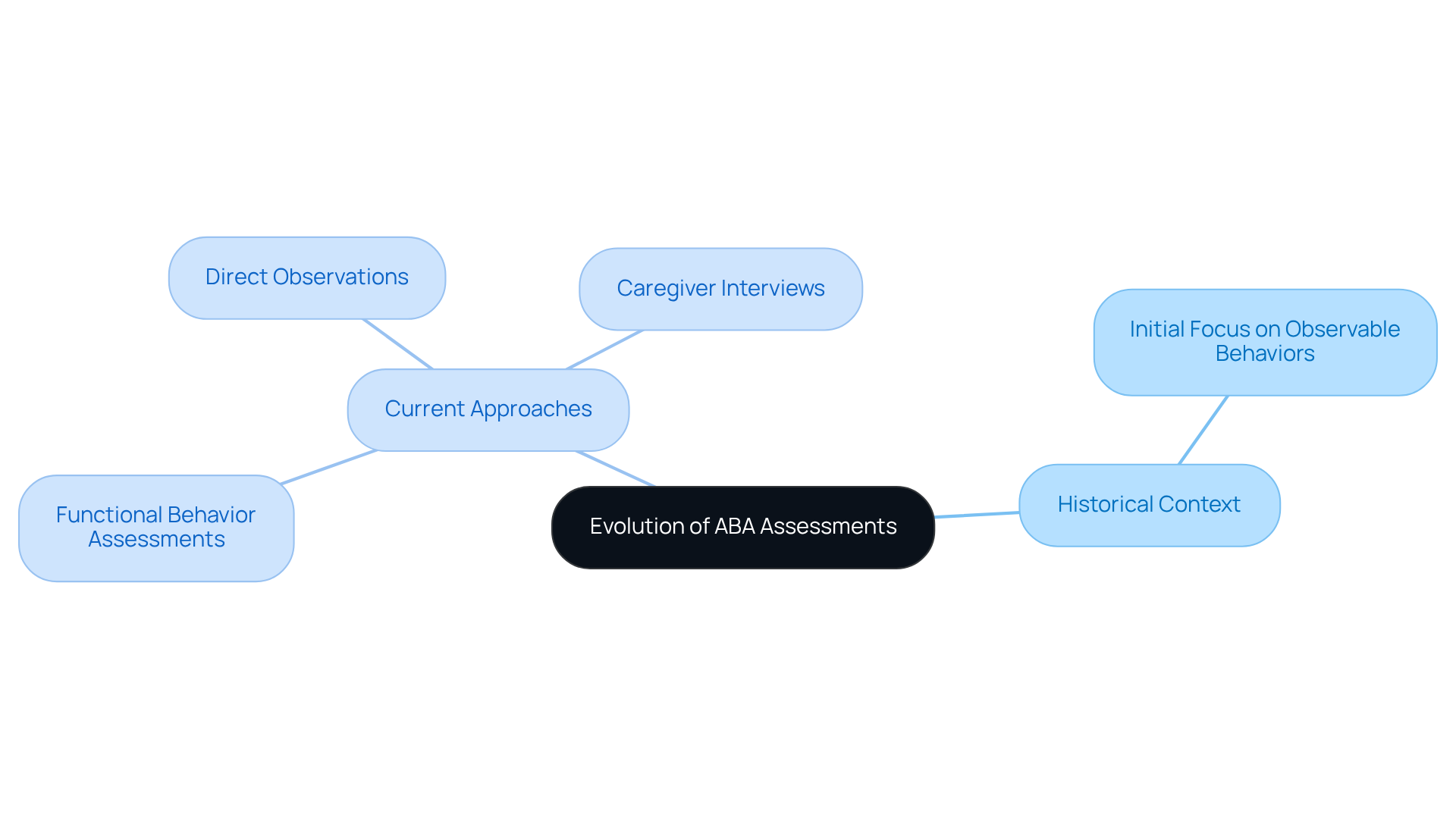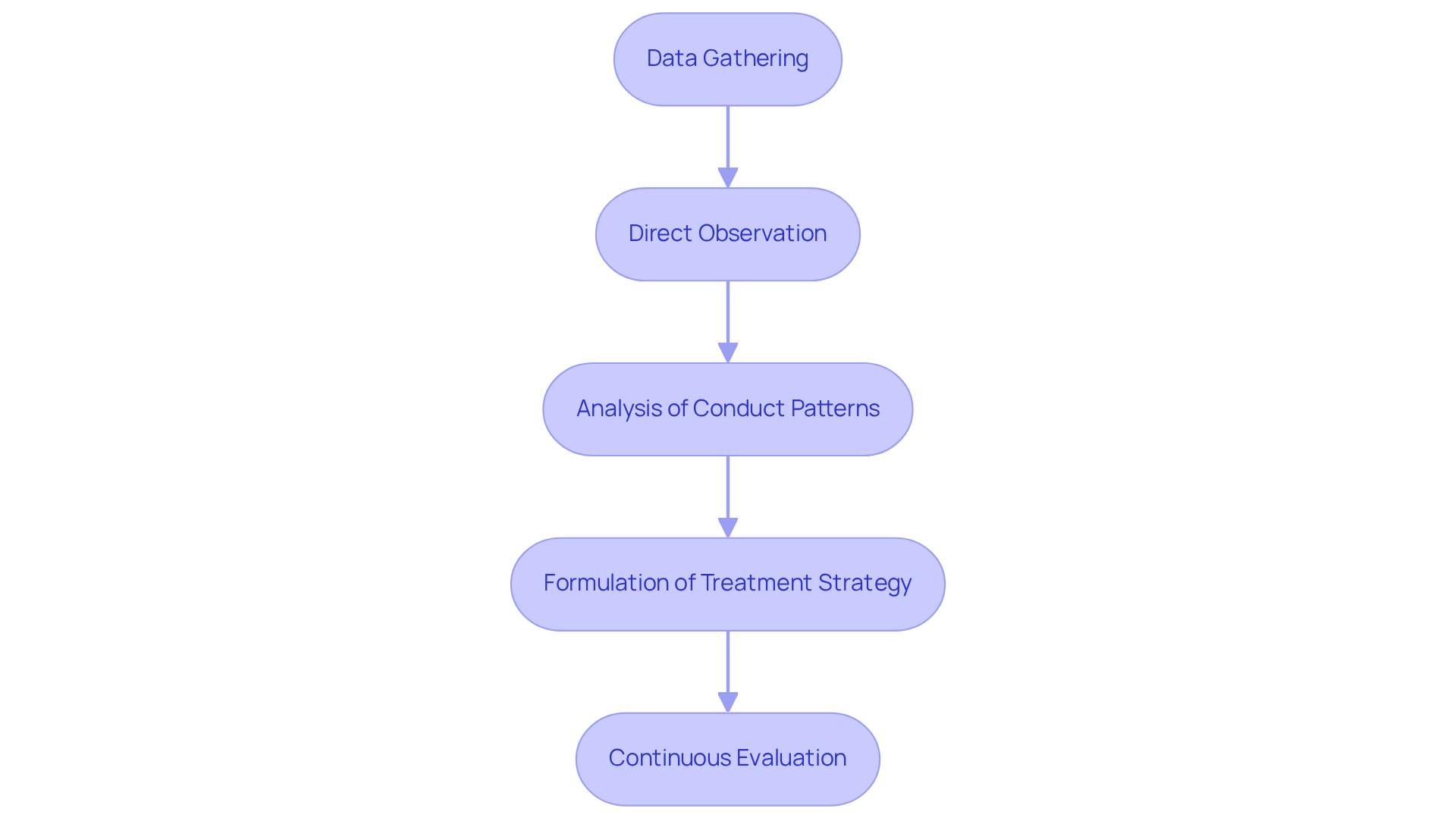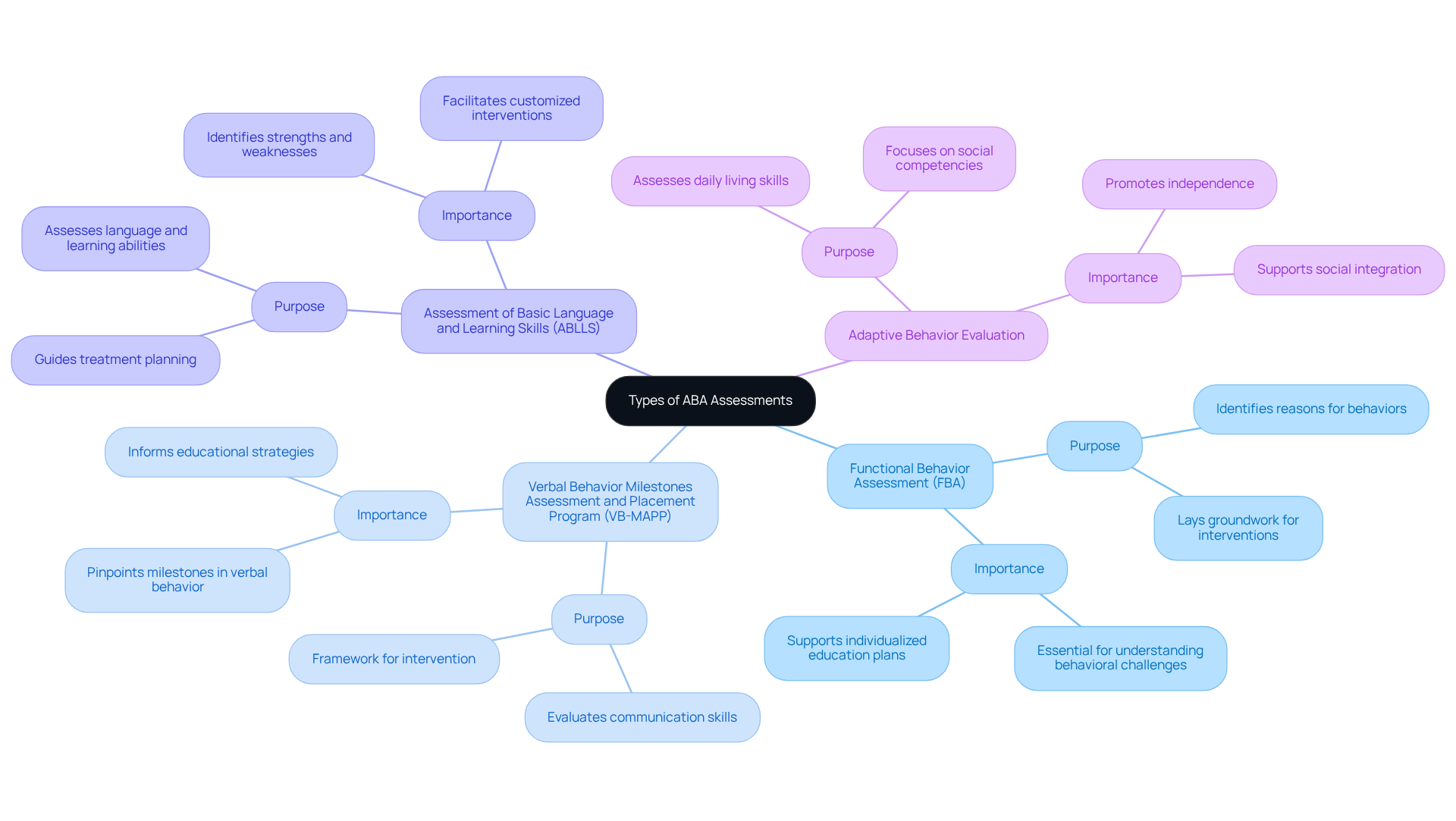July 5, 2025

The article underscores the critical role of ABA (Applied Behavior Analysis) assessments, which serve to evaluate an individual's behavior and needs, ultimately informing effective treatment strategies. These assessments are not merely a formality; they establish a baseline for personalized interventions. Moreover, they have evolved to incorporate diverse methodologies that take into account cognitive and emotional factors, significantly enhancing therapeutic outcomes.
Consider the growing demand for Board Certified Behavior Analysts (BCBAs) in today’s healthcare landscape. The benefits of employing ABA assessments extend beyond initial evaluations; they are integral in developing tailored treatment plans that resonate with each individual’s unique circumstances.
Reflect on your current hiring challenges. How can you ensure that you are recruiting the best talent to meet the needs of your clients? The reliability of ABA assessments lies in their comprehensive approach, which not only addresses behavioral concerns but also fosters an understanding of the emotional and cognitive dimensions of each case.
In conclusion, ABA assessments are essential tools in the arsenal of effective treatment strategies. They not only provide a foundation for personalized interventions but also adapt to the evolving landscape of behavioral health. As you consider your recruitment strategies, remember that the right assessments can lead to improved outcomes and greater satisfaction for both clients and practitioners.
Understanding the intricacies of ABA assessments is essential for anyone involved in Applied Behavior Analysis. These evaluations lay the groundwork for effective therapeutic interventions. By systematically examining an individual's behaviors, skills, and needs, ABA assessments inform personalized treatment plans and enhance the overall effectiveness of therapy.
However, with various types of assessments available, how can practitioners determine which approach best meets the unique challenges of each client? This article delves into the purpose, types, and processes of ABA assessments, offering insights that can significantly impact treatment outcomes.
An ABA assessment serves as a systematic examination designed to evaluate an individual's behavior, skills, and needs within the context of Applied Behavior Analysis (ABA) therapy. These evaluations, such as the ABA assessment, are crucial as they establish a baseline understanding of a person's current abilities and challenges, which in turn informs the development of . The significance of the ABA assessment cannot be overstated; it enables therapists to identify specific behavioral goals, monitor progress, and adjust interventions as necessary. By comprehensively understanding the unique profile of each individual, practitioners can customize their approaches, ultimately enhancing therapeutic effectiveness and improving outcomes.
Have you considered how an ABA assessment could transform your understanding of client needs? By leveraging the insights gained from these evaluations, you can ensure that your treatment strategies are not only effective but also tailored to maximize each individual's potential.

The evolution of ABA evaluations has significantly progressed since the inception of Applied Behavior Analysis in the mid-20th century. Initially, evaluations were rudimentary, focusing primarily on observable behaviors. However, as the field has matured, it has embraced a more comprehensive approach that incorporates a variety of evaluation tools and methodologies. These now consider cognitive, emotional, and environmental factors, reflecting a deeper understanding of the complexities of behavior and the need for tailored evaluation strategies.
Today, ABA assessments often include:
This offers a holistic view of an individual's needs and strengths.

ABA assessments are critical components of effective behavioral analysis, including essential elements such as:
The process initiates with comprehensive information collection through caregiver interviews and meticulous review of relevant records. Following this, practitioners conduct to assess behavior across various environments. This collected data undergoes thorough analysis during the ABA assessment to pinpoint strengths, weaknesses, and potential areas for intervention. The evaluation culminates in the formulation of a tailored treatment strategy designed to address the individual's unique needs. Furthermore, continuous evaluation remains integral to the process, facilitating ongoing modifications to the treatment plan based on the individual's progress.

The demand for (BCBAs) is projected to surge by 25% by 2026, underscoring the critical role of ABA assessments in meeting the unique needs of children. ABA assessments encompass various types, each tailored to meet specific requirements for the aba assessment. Key assessments include:
Each evaluation type, such as the aba assessment, is instrumental in creating a comprehensive profile of the individual, enabling practitioners to tailor interventions that effectively address unique challenges and foster positive outcomes. As the demand for BCBAs rises, the relevance of aba assessments in the field of Applied Behavior Analysis becomes increasingly critical.

ABA assessments are essential for understanding and addressing the unique behavioral needs of individuals, particularly within the realm of Applied Behavior Analysis therapy. These systematic evaluations not only establish a baseline of an individual's abilities and challenges but also guide the development of personalized treatment plans that significantly enhance therapeutic effectiveness and outcomes.
Key components such as data gathering, direct observation, and the analysis of behavioral patterns are critical steps in the ABA assessment process. Various types of assessments—including Functional Behavior Assessments, VB-MAPP, ABLLS, and Adaptive Behavior Evaluations—serve distinct purposes, contributing to a comprehensive understanding of an individual's needs. The evolution of these assessments reflects a deeper understanding of behavior, emphasizing the necessity of tailored evaluation strategies that consider cognitive, emotional, and environmental factors.
The significance of ABA assessments extends beyond mere evaluation; they are instrumental in fostering positive behavioral change and promoting individual growth. As the demand for Board Certified Behavior Analysts continues to rise, embracing the insights provided by ABA assessments is crucial for developing effective interventions that empower individuals to reach their full potential. Engaging with these assessments transforms treatment strategies and enriches the lives of those they serve, underscoring the profound impact of personalized behavioral analysis.
What is the purpose of an ABA assessment?
The purpose of an ABA assessment is to systematically evaluate an individual's behavior, skills, and needs within the context of Applied Behavior Analysis (ABA) therapy.
Why is an ABA assessment important?
An ABA assessment is important because it establishes a baseline understanding of a person's current abilities and challenges, which helps in developing personalized treatment plans.
How does an ABA assessment benefit therapists?
An ABA assessment benefits therapists by enabling them to identify specific behavioral goals, monitor progress, and adjust interventions as necessary based on the individual's unique profile.
What outcomes can be improved through ABA assessments?
ABA assessments can enhance therapeutic effectiveness and improve outcomes by allowing practitioners to customize their approaches to meet the specific needs of each individual.
How can insights from an ABA assessment impact treatment strategies?
Insights gained from an ABA assessment can ensure that treatment strategies are effective and tailored to maximize each individual's potential.
Our expert recruitment strategies and AI-driven sourcing ensure that you receive top-notch candidates quickly, without compromising on quality. Whether you’re looking for BCBAs, Clinical Directors, or RBTs, we’ve got you covered.